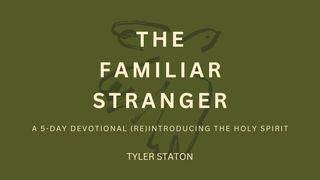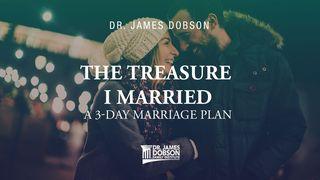Infidelity: Obstacles to RecoverySample

SPOUSE STILL STRUGGLING AFTER AFFAIR
Over and over again the Bible likens God’s relationship with His people to a marriage. When the people forsake Yahweh for the idols of the nations, the prophets compare their sin to the sin of adultery; and when God, like a loving, patient, and forgiving husband, woos them and draws them back to Himself with cords of love (Hosea 11:4), His action is described in terms of a marital reconciliation.
This is exactly what Isaiah has in view when he portrays the Lord as inviting the inhabitants of Judah to come and “reason” with Him. The Hebrew word used in this passage belongs to the sphere of the law court. The assumption is that the two parties involved are entering into a process of coming to terms. They’re preparing to lay their issues on the table, hash things out, and invest the time and effort required to put the relationship back on a functional basis. They’re coming together, possibly with the help of a neutral arbitrator, in a desire to correct unhealthy relational patterns, heal the hurts of the past, and make things right again. And they’re acknowledging right up front that it’s going to take a lot of hard work.
You and your spouse should expect to do the same if you’re recovering from the impact of infidelity. Nothing shakes up a marriage quite like an affair, and you can’t expect to reverse the damage overnight. If you were the guilty party in this instance, you need to remember that your spouse is still reeling; he feels betrayed, and you have to allow him to work through the pain and anguish of that experience. It’s easy to say that “time heals all wounds,” but the fact is that very little healing can occur unless a paradigm shift takes place at the heart of your marriage. Without that shift, you can become hopelessly trapped in an ongoing pattern of grief, anger or depression.
Confessing your fault and asking forgiveness of both God and your spouse is the first step. That in itself takes a great deal of humility and courage. Without it there can be no restoration of the relationship. But it’s important to bear in mind that it’s only the first step.
If you want to keep moving in the right direction, you and your spouse need to work together to discover the distorted thought processes and root issues that led to your adultery in the first place. Many times these lie so deep that they actually pre-date the marriage. It usually takes two people to make a relationship more vulnerable to negative influences, and unless the causes of this vulnerability are identified and dealt with, you run a very real risk of falling into the same trap again at some point in the future. Simply confessing and asking forgiveness in the present doesn’t guarantee that you’ll be equipped with healthier coping skills the next time trials or temptations arise.
However good your intentions may be, the fact remains that your wounds are still raw. Under the circumstances, it’s unrealistic to suppose that you and your spouse can resolve these issues on your own. No one expects cardiac patients to perform surgery on themselves. In the same way, a marriage that has been through the devastation of infidelity needs the healing touch of a highly skilled third party — a trained professional therapist — if it’s to survive. The best thing you can do now is to seek marital counseling together.
In the meantime, it would be a good idea to get a copy of Dave Carder’s book Torn Asunder and study it together. This resource is available through Focus on the Family’s Online Store (http://family.christianbook.com/torn-asunder-recovering-from-extramarital-affair/dave-carder/9780802471352/pd/471352?event=ESRCG).
For more help, visit Focus on the Family’s Help Center (http://family.custhelp.com/app/home), or call the ministry’s Counseling Department for a free consultation at 855-771-HELP (4357).
Over and over again the Bible likens God’s relationship with His people to a marriage. When the people forsake Yahweh for the idols of the nations, the prophets compare their sin to the sin of adultery; and when God, like a loving, patient, and forgiving husband, woos them and draws them back to Himself with cords of love (Hosea 11:4), His action is described in terms of a marital reconciliation.
This is exactly what Isaiah has in view when he portrays the Lord as inviting the inhabitants of Judah to come and “reason” with Him. The Hebrew word used in this passage belongs to the sphere of the law court. The assumption is that the two parties involved are entering into a process of coming to terms. They’re preparing to lay their issues on the table, hash things out, and invest the time and effort required to put the relationship back on a functional basis. They’re coming together, possibly with the help of a neutral arbitrator, in a desire to correct unhealthy relational patterns, heal the hurts of the past, and make things right again. And they’re acknowledging right up front that it’s going to take a lot of hard work.
You and your spouse should expect to do the same if you’re recovering from the impact of infidelity. Nothing shakes up a marriage quite like an affair, and you can’t expect to reverse the damage overnight. If you were the guilty party in this instance, you need to remember that your spouse is still reeling; he feels betrayed, and you have to allow him to work through the pain and anguish of that experience. It’s easy to say that “time heals all wounds,” but the fact is that very little healing can occur unless a paradigm shift takes place at the heart of your marriage. Without that shift, you can become hopelessly trapped in an ongoing pattern of grief, anger or depression.
Confessing your fault and asking forgiveness of both God and your spouse is the first step. That in itself takes a great deal of humility and courage. Without it there can be no restoration of the relationship. But it’s important to bear in mind that it’s only the first step.
If you want to keep moving in the right direction, you and your spouse need to work together to discover the distorted thought processes and root issues that led to your adultery in the first place. Many times these lie so deep that they actually pre-date the marriage. It usually takes two people to make a relationship more vulnerable to negative influences, and unless the causes of this vulnerability are identified and dealt with, you run a very real risk of falling into the same trap again at some point in the future. Simply confessing and asking forgiveness in the present doesn’t guarantee that you’ll be equipped with healthier coping skills the next time trials or temptations arise.
However good your intentions may be, the fact remains that your wounds are still raw. Under the circumstances, it’s unrealistic to suppose that you and your spouse can resolve these issues on your own. No one expects cardiac patients to perform surgery on themselves. In the same way, a marriage that has been through the devastation of infidelity needs the healing touch of a highly skilled third party — a trained professional therapist — if it’s to survive. The best thing you can do now is to seek marital counseling together.
In the meantime, it would be a good idea to get a copy of Dave Carder’s book Torn Asunder and study it together. This resource is available through Focus on the Family’s Online Store (http://family.christianbook.com/torn-asunder-recovering-from-extramarital-affair/dave-carder/9780802471352/pd/471352?event=ESRCG).
For more help, visit Focus on the Family’s Help Center (http://family.custhelp.com/app/home), or call the ministry’s Counseling Department for a free consultation at 855-771-HELP (4357).
Scripture
About this Plan

Recovering from infidelity and building a thriving marriage is possible, but it’s not easy. Along the way, there will be obstacles. Learning to overcome those challenges is key to rebuilding your marriage and moving forward with hope.
More
Related plans

The Familiar Stranger

The Church - Ephesians 4

Sound of Heaven: A 6-Day Devotional by Danny Gokey

Desperate Prayers for Hope in Hard Times

There Is No Law Against These Things

EquipHer Vol. 7: "Empower Your Voice, Impact Your Audience"

The Treasure I Married: A 3-Day Marriage Plan

You Were Made for More

2 Thessalonians
